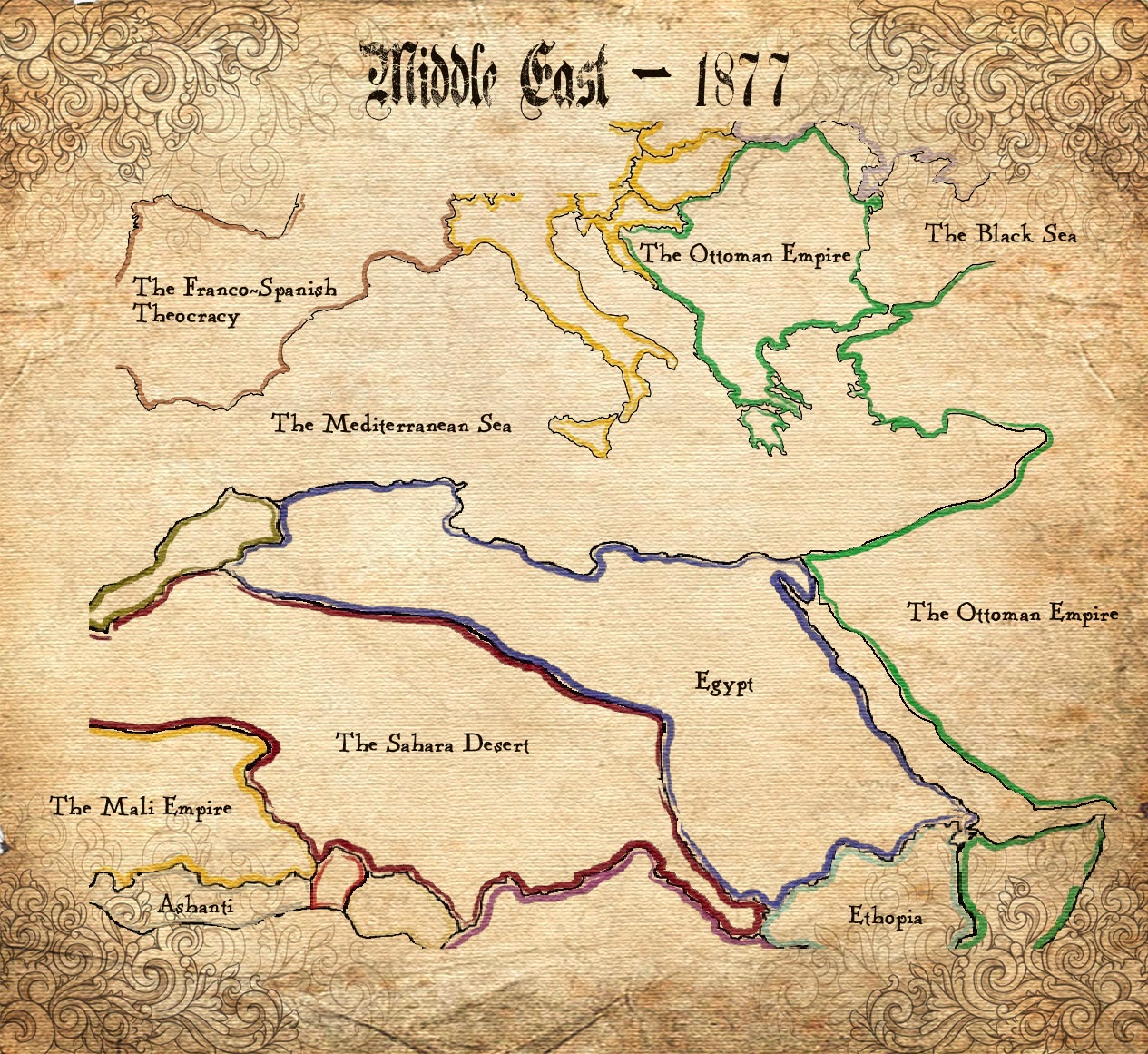 Egypt
Egypt
Egypt is one of the oldest cultures in the world. Recent archeological research shows evidence that early tribal peoples migrated to the Nile River, where they developed a settled agricultural economy and more centralized society nearly 10,00 years ago.
The New Kingdom( c. 1550–1070 BCE) saw Egypt become the bastion of the Ohmnian faith, marking the rise of Egypt as an international power that expanded during its greatest extension to an empire. Frequent contacts with other nations brought new ideas to the New Kingdom.
The New Kingdom fell to the Persians in 343 BCE, however their rule did not last long. The Persians were toppled several decades later by Alexander the Great, leading to the Ptolemaic Era.
In 47 BCE, during the Roman Civil War, Caesar conquered Egypt and placed Cleopatra on the throne. Cleopatra seduced Caesar and converted him to the Ohmnian faith. During the ongoing conflict with Ptolemy, the Library of Alexandria burned and with it virtually all of the original Ohmnian writings. Shortly thereafter, Caesar and Cleopatra’s forces invaded Rome, and Egypt became the major power in the Mediterranean.
Egypt remains the primary power in the region. This is due in large part to the Holy City of Memphis being home to the High Temple of Ohm. As the Holy Land of Ohm, Egypt hosts pilgrims and visitors from all over the world. Many archeologists and historians visit to study the ancient cities and pyramids that date back before the Deliverer.
There are significant Egyptian communities in the Confederation of European States, these communities maintain close ties to the Orthodox Church of Ohm. Few travel to the Americas, as Egypt currently enjoys a time of stability and prosperity. The sects of Ohmnism that fled to the Americas prefer a more puritanical and inflexible interpretation of the faith, which is often viewed with distaste by the orthodox followers of Egypt and Europe.
Ottoman Empire
Rising to power in 1299, the Ottoman Empire of today is a major power of the world. It spans much of the Middle East, eastern Europe, and parts of North Africa.
The Crimean War (1853–1856) was part of a long-running contest between the major European powers for influence over territories of the declining Ottoman Empire. As the Ottoman state attempted to modernize its infrastructure and army in response to threats from the outside, it also opened itself up to a different kind of threat: that of creditors. The Ottoman army brutally suppressed the Bulgarian uprising of 1876, massacring up to 100,000 people in the process. The recent Russo-Turkish War has many wondering how long the Ottoman Empire can maintain its control in Eastern Europe.

